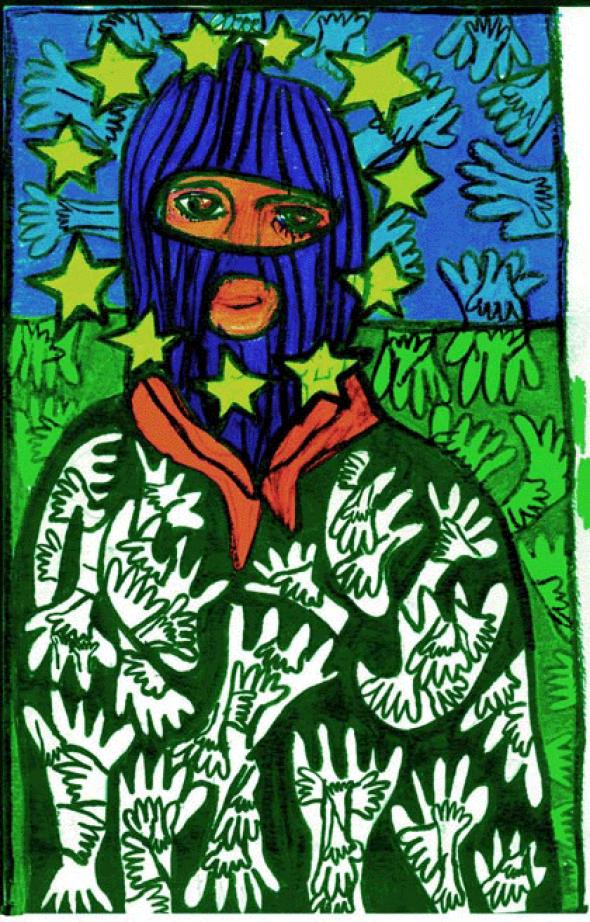European Social Consulta: Progress in Process
Uri Gordon investigates the inception and development of the European Social Consulta. Will actions around the G8 meeting in July reinvigorate this difficult progress toward a new form of ‘direct democracy’?
The idea of a European Social Consulta originated in a Spanish experiment from the year 2000, a mock-referendum on external debt. Without relying on any single structure or acronym, 500 assemblies were formed in communities and neighbourhoods across the country. More than one million people participated, with 97 percent voting for the abolition of Spain’s external debt. This process was swiftly outlawed by the judicial authorities, and became a significant initiation into civil disobedience. People had to fight the police to get to the ballot boxes.
On the basis of this success, activists proposed the continuation of the Consulta process in a form that would encompass all of Europe. Drawing on a variety of precursors – including the Spanish Revolution, the Consulta Popular de Brazil and the Argentine Assemblies, the European Social Consulta was conceived as an attempt to develop a plausible anti-authoritarian and democratic alternative to capitalism and representative ‘democracy’.
There are numerous interpretations of what the European Consulta is about among the participants involved in its realisation. It can be summarised, however, as a co-ordinated but decentralised effort to open spaces of direct democracy at the European grassroots level. By creating meeting spaces, as well as concrete projects, people from all walks of life could begin discussing their problems and organising their own solutions, independent of both state and market.
Anti-capitalist activists across Europe have been invited to create local ‘promoter groups’ and encourage people to create the discussion and action spaces in their areas, as they saw fit. Meetings were arranged, mailing lists and websites set up, and presentations organised at every major protest for the past two years. Clearly, though, it will take time before anything material transpires: the organisational problems with creating a functioning democratic process have been legion. The form of popular direct democracy that the Consulta hopes to foster requires a great deal of energy from all participants. It is the child of a movement at high-tide, before the series of crises that broke after September 11. But the massive anti-war mobilisations all over Europe are politicising vast numbers of people for the first time. The G8 and EU meetings in June also promise to keep the idea of the Consulta on the European agenda.
Recommended websites:[http://www.consultaeuropea.org ][http://www.agp.org ]
Uri Gordon <uri AT riseup.net > is an Israeli radical activist temporarily based in Oxford
Mute Books Orders
For Mute Books distribution contact Anagram Books
contact@anagrambooks.com
For online purchases visit anagrambooks.com








